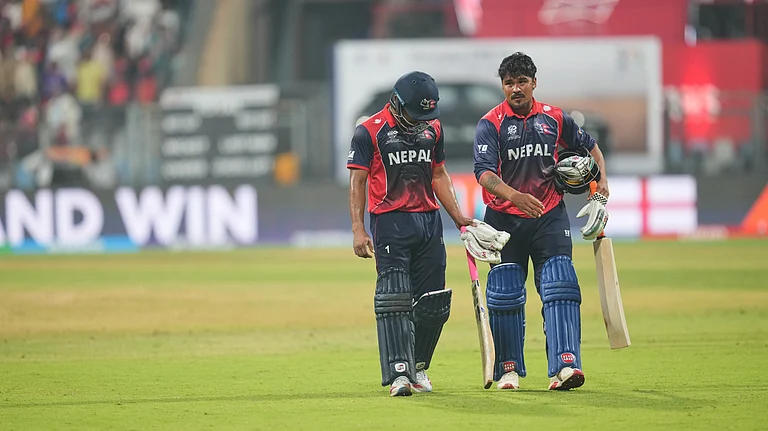RUPERT Murdoch is desperately seeking a miracle in India. It is not for nothing, therefore, that he will part with a reported Rs 1.5 million a month, plus an impressive range of perks which include a chauffeur-driven Merc and a furnished apartment in downtown Bombay, for the home-grown expertise of former Doordarshan helmsman R. Basu. The high-profile 1964 batch Gujarat cadre IAS officer, who steered Doordarshan through three tumultuous years as director-general, will have his job cut out when he assumes the mantle of STAR TV India's managing director in October. The goals before him will be demanding, to say the least, and the timeframe far from comfortable.
On the face of it, the going has been rather smooth for STAR TV. Now in its fifth year, the network has built up a sizeable following in the Asia-Pacific region. Channel V is a cool act, STAR Plus has concealed its minuses well and STAR Sports has generally been on the ball. Yet—and this is the problem—it continues to be a drain on the resources of Murdoch's News Corp. STAR TV is already $250 million in the red, with the last financial year alone accounting for some $60 million in losses. That, understandably, is worrying the media magnate whose empire straddles virtually the entire globe. Even if you have deep pockets, losses are losses. Hence the need for a firefighter.
Miracle worker, firefighter, lodestar, interlocutor: Basu will have to play a panoply of tough roles. India, after all, is STAR TV's biggest market. And the man who nearly turned the slothful, chaotic Doordarshan around will now be called upon to pull another rabbit out of his hat and carve out a larger slice of the Indian pie for the Hong Kong-based network. Says a STAR TV functionary: "Basu's induction, and the changes at the top that it will lead to, are an indication of how serious Murdoch is about bolstering his Indian operations." What is repeatedly left unsaid is that the only channel on the STAR TV network that makes money, Zee, does not fully belong to Murdoch. He has a 49 per cent stake in Zee and its ground distribution operation, Siti Cable. And that is simply not enough.
That will be task number one for Basu: doing a Zee with STAR's upcoming Indian language channels. But are they actually in the pipeline? The periodic official denials notwithstanding, efforts are afoot at STAR TV India to launch a Hindi language entertainment channel that will be independent of Zee. Gene Swinstead, the present STAR TV India managing director, told Outlook a month ago: "We have made no progress with our plans to launch local language channels. Both STAR and Zee are concentrating on fine-tuning our current programming to stay ahead of the competition."
But indications are that STAR TV has already contracted some Bombay software producers, including United Television in which Murdoch has a 40 per cent stake, to make programmes for the new channel.
" STAR Hindi is expected to be launched in January 1997," says one producer. "While STAR TV is struggling to break even, Zee TV is cornering all the profits. So there is every reason for Murdoch to launch local language channels of his own." A Tamil language channel, probably as part of a direct-to-home platform created in collaboration with Sun TV, is also on the way. Negotiations for the southern joint venture are currently on.
So far so good. But Zee TV's Subhash Chandra is unlikely to take kindly to the launch of a Hindi channel by STAR and Basu, as a member of Zee's board of directors in his capacity as STAR's India managing director, will have to get Murdoch's point of view across, besides handling the impact of the fallout on the STAR-Zee relationship. STAR's partners, its rivals, software producers, government agencies—Basu will be busy tackling them all.
He will, however, begin with an advantage. His is a name that the entire Indian television industry is familiar with. He has earned respect for the way he ran Doordarshan at a crucial juncture in the organisation's history. "It is this goodwill that STAR TV is seeking to tap to provide a renewed thrust to its operations in India," says a media analyst who has watched Murdoch's progress in India from the outset.
When Murdoch bought 64 per cent of STAR TV from Hong Kong billionaire Li KaShing in 1993, he had drawn up plans for a powerful pan-Asian channel. But three years on, confronted with the cultural and demographic diversity of the Asia-Pacific region, he has veered round to the view that local-language programme content holds the key to long-term success. Hence he has decided to split his sprawling Asian operations into four separate arms—Japan, China, Indonesia and India. For each, he has a special strategy. And Basu will be the pivot around which his Indian plans will now revolve.
On AsiaSat-2, STAR TV has six C-band and three Ku-band transponders, which can be digitally split to yield up to 40 channels, several of them India-specific. With STAR TV poised on the threshold of a major expansion, Basu will be in the thick of the action once again. Only, this time around he'll have an unprecedented seven-digit salary to show for his effort. Miracles don't come cheap, do they?


























